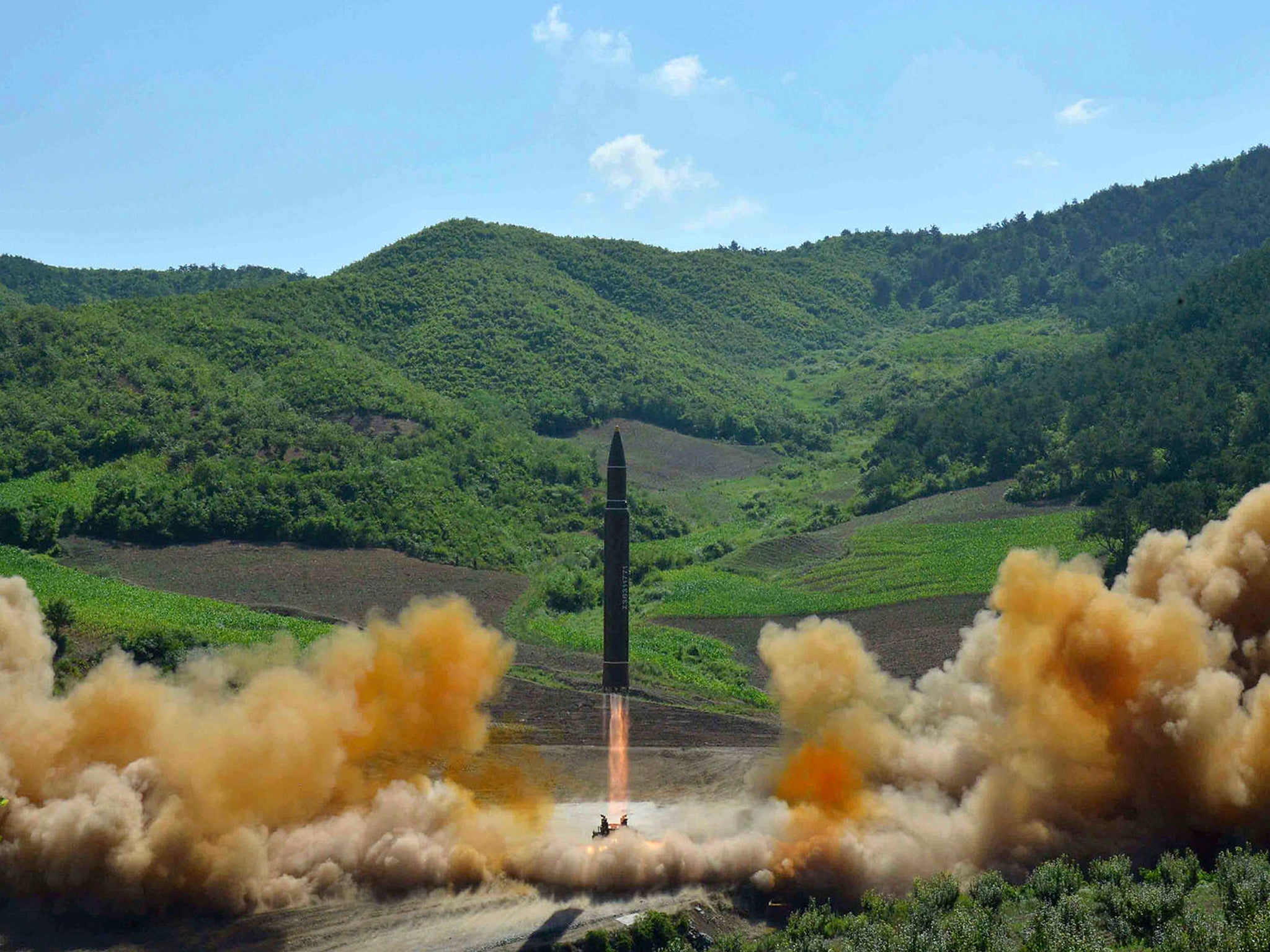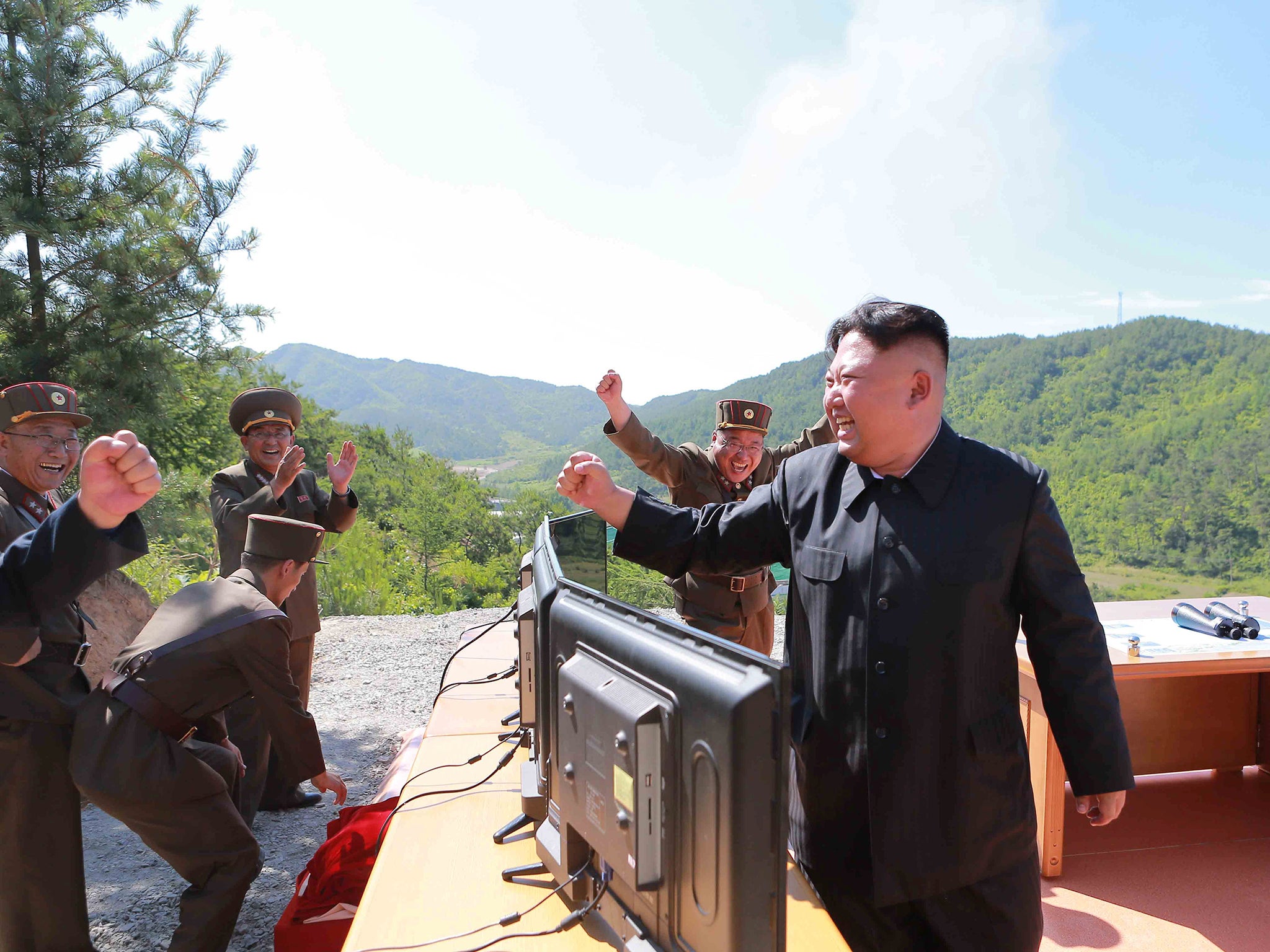South Korea's new government proposes rare military talks with North Korea to ease tensions
It comes as Chinese sanctions cause surge in petrol and diesel prices in hermit state

Your support helps us to tell the story
From reproductive rights to climate change to Big Tech, The Independent is on the ground when the story is developing. Whether it's investigating the financials of Elon Musk's pro-Trump PAC or producing our latest documentary, 'The A Word', which shines a light on the American women fighting for reproductive rights, we know how important it is to parse out the facts from the messaging.
At such a critical moment in US history, we need reporters on the ground. Your donation allows us to keep sending journalists to speak to both sides of the story.
The Independent is trusted by Americans across the entire political spectrum. And unlike many other quality news outlets, we choose not to lock Americans out of our reporting and analysis with paywalls. We believe quality journalism should be available to everyone, paid for by those who can afford it.
Your support makes all the difference.South Korea has offered to have military talks with North Korea in order to ease tension across their border and resume the reunion of families separated by their war in the 1950s.
It is the first formal overture to Pyongyang by the government of President Moon Jae-in, which said the two sides should discuss ways to avoid hostile acts near the heavily militarised border.
It is unclear if the North would agree to the proposed talks, as it remains suspicious of the South Korean President's actions, seeing the new leader's more liberal policy as still resorting to the United States to force North Korea to disarm.
The offer comes after the North claimed to have conducted the first test of an intercontinental ballistic missile (ICBM) earlier this month, and said it had mastered the technology to mount a nuclear warhead on the missile. South Korea and the United States dispute the claim.
It also comes amid a surge in petrol and diesel prices in the hermit state, weeks after a Chinese state oil company suspended fuel sales amid international pressure on Pyongyang to curb its nuclear and missile programmes.
China National Petroleum Corp (CNPC), a state-controlled company, halted diesel and petrol sales to the reclusive state “over the last month or two”, according to Reuters.
Kang Mi-jin, a defector who speaks regularly to market sources inside North Korea and reports commodity prices for Daily NK, said the price spikes in recent weeks were caused initially by the rumours, later confirmed, that China was restricting the flow of oil to North Korea.
North Korea gets most of its fuel from China, with some coming from Russia. A prolonged cut by China would threaten critical supplies of petrol and diesel and force North Korea to find alternatives sources of refined fuel products.
“After North Korea’s frequent missile tests including its very first ICBM test, the international community has vowed to tighten sanctions and China simply cannot exclude itself from the recent movement, although it probably does not want to indefinitely cut off fuel sales to the North," Mr Kang said.
The government is likely North Korea's largest user of fuel products, but most petrol and diesel bought by ordinary citizens comes from private dealers and smugglers, experts say.
Primary users of fuel products in North Korea include fishermen, farmers, truckers and the military.
In an act to rein in the North, the United States is preparing new sanctions on Chinese banks and firms doing business with Pyongyang possibly within weeks, two senior US officials told Reuters.
The proposals for the talks between the North and South come after the South’s President said earlier this month at the G20 summit in Hamburg he was in favour of dialogue despite the “nuclear provocation” of the North’s latest missile test.
The South Korean defence ministry has proposed talks with the North on 21 July at Tongilgak to stop all activities that fuel tension at the military demarcation line. Tongilgak is a North Korean building at the Panmunjom truce village on the border used for previous inter-Korea talks, with the last talks being held in December 2015.
“Talks and cooperation between the two Koreas to ease tension and bring about peace on the Korean peninsula will be instrumental for pushing forth a mutual, virtuous cycle for inter-Korea relations and North Korea's nuclear problem,” the South's unification minister Cho Myoung-gyon told a news briefing.
Mr Cho also urged the restoration of military and government hotlines across the border, which had been cut by the North last year in response to the South imposing economic sanctions after a nuclear test by Pyongyang. In all, the North has conducted five nuclear tests and numerous missile tests.

The North's latest ICBM launch has stoked security worries as it showed the country could eventually perfect a reliable nuclear missile capable of reaching anywhere in the United States. Analysts say the ICBM that was tested could reach Alaska.
After the launch, the North Korean leader, Kim Jong-un, said he would never negotiate his weapons programmes unless the United States abandons its hostile policy toward his country. His statement suggested he will order more missile and nuclear tests until North Korea develops a functioning ICBM that can place the entire US within its striking distance.
When asked if South Korea was willing to be “flexible” on military drills with the United States should North Korea be open to talks, Mr Cho said the government had not discussed the matter specifically.

Pyongyang has repeatedly said it refuses to engage in all talks with the South unless Seoul turns over 12 waitresses who defected to the South last year after leaving a restaurant run by the North in China.
North Korea says the South abducted the 12 waitresses and the restaurant manager and has demanded their return, but the South has said the group decided to defect of its own free will. Mr Cho said this matter is not included on the talks agenda.
Mr Moon suggested earlier this month hostile military activities at the border be ended on 27 July, the anniversary of the 1953 armistice agreement that ended the Korean War. Since no truce was agreed, the two sides remain technically at war.
Additional reporting by agencies
Join our commenting forum
Join thought-provoking conversations, follow other Independent readers and see their replies
Comments